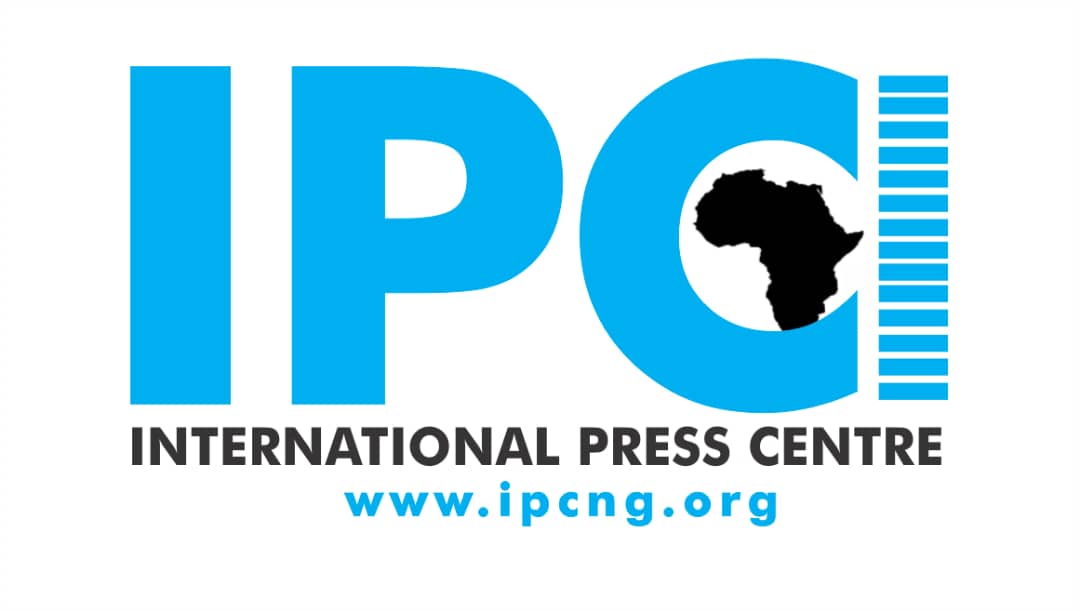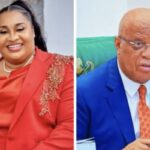COMMUNIQUÉ OF A ONE-DAY CONSULTATIVE SESSION WITH THE LEADERSHIP NIGERIA ASSOCIATION OF WOMEN JOURNALISTS (NAWOJ) & FEMALE MEDIA EXECUTIVES ON ADVANCING WOMEN JOURNALISTS’ PROFESSIONALISM IN DEMOCRATIC REPORTING AND RELATED ISSUES HELD AT GOLDEN TULIP PORT HARCOURT HOTEL, RIVERS STATE, ON SATURDAY, MAY 24, 2025
Introduction:
The activity was implemented by the International Press Centre (IPC) with the support of the European Union through Component 4: Support to Media of the European Union Support to Democratic Governance in Nigeria – Phase 2 (EUSDGN II) programme.
The session brought together NAWOJ leadership, alongside Editors, Senior Reporters, and Producers/Presenters from print, broadcast, and online media.
The aim is to strengthen the professional role of NAWOJ and women journalists in ensuring the inclusive implementation of campaign promises addressing gender concerns and promoting women issues in the electoral reform process and elections by using the methodologies of solution-driven journalism.
In his opening remarks, Mr. Lanre Arogundade, Executive Director, IPC, highlighted the essential role of female journalists in strengthening democracy and advancing women’s political participation. He reaffirmed IPC’s commitment to equipping them with the skills and resources needed for effective reporting of women issues and ensuring greater visibility for Nigeria’s female politicians.
NAWOJ National Chairperson, Hajiya Aisha Ibrahim, represented by Deputy National Chairperson Dr. Lilian Okonkwo-Ogabu, commended the initiative and pledged support for collaborative efforts to advance women’s empowerment and ethical journalism. She emphasized that empowering female journalists contributes to a more inclusive democratic process.
Additionally, Dr. Titilayo Osuagwu, a senior lecturer at the University of Port Harcourt, underscored the importance of recognizing women’s contributions to politics. In her presentation, titled “Utilizing Media Power to Promote Electoral Outcomes & Reforms Addressing Women’s Issues: A Roadmap for NAWOJ/Female Journalists,” she urged female journalists to prioritize gender-sensitive reporting in their coverage.
Arising from the discussions at the event, participants highlighted the significant challenges faced by journalists and women in society as follows:
Observations:
• In the African media landscape, socio-political challenges continue to hinder women’s involvement and influence, as traditional expectations frequently discourage them from assuming leadership positions.
• Female journalists aspiring to engage in political journalism often struggle to have organized support systems for professional development. The reluctance of some women leaders in the media to offer mentorship further limits opportunities for rising female journalists.
• Due to fear of retaliation and ingrained biases, many women are reluctant to pursue leadership positions, stalling their professional development.
• The lack of adequate skills and training, particularly in stenography, hinders journalists, especially women, from maximizing accuracy and efficiency in their reporting
• Workplace opposition, gender biases, and political hurdles continue to deter women from seeking leadership positions, limiting their ability to advance professionally.
• Many female politicians struggle to secure funding and institutional backing, limiting their ability to campaign effectively and sustain political ambitions.
• In many patriarchal societies, women, including female journalists, often view themselves as victims or second-class citizens, which hinders their confidence and leadership.
• Due to cultural constraints, women in political positions are often hesitant to engage with the media, further reducing their visibility and influence
Recommendations:
Following exhaustive discussion of the challenges and the matters arising, the consultative meeting recommended that:
• NAWOJ and IPC should collaborate to organise forums that bring elected female politicians into face-to-face interaction with female journalists and female media executives with a view to exploring channels for the promotion of their issues;
• NAWOJ and IPC should collaborate to document women related campaign promises at the federal and state levels, assess the state of their implementation and deploy solution-driven journalism approach to ensure the fulfillment of the yet to be implemented ones;
• NAWOJ and female media executives should deliberately engage with and report the achievements of elected women politicians as a strategy to amplify women’s success stories through storytelling that shifts public perceptions positively and encourages citizens to continue to support women at elections;
• NAWOJ and female media executives should lend support to the advocacy for electoral reforms that promote affirmative action and legislations that seek to give better representation for women including but not limited to the bills for reserve seats for women and independent candidacy;
• NAWOJ should encourage female journalists to continuously enhance their professional skills by embracing online training and utilizing the modules to be developed by the International Press Centre and Centre for Media and Society on their planned Virtual Training Platform as co-implementers of Component 4: Support to media of EU-SDGNII;
• NAWOJ should collaborate with IPC to host regular forums for female media executives to address newsroom challenges and explore career growth opportunities for female journalists;
• NAWOJ should launch mentorship initiatives where senior professionals guide young journalists, fostering knowledge transfer and career development;
• NAWOJ should drive awareness campaigns with empowering messages like “I Can, We Can” to strengthen women’s confidence in professional and political spaces;
• NAWOJ should encourage members to create dedicated media platforms that give greater voices to women and spotlight gender-related issues;
• NAWOJ should collaborate with security agencies to integrate discussions on women’s safety into training programs, ensuring that threats faced in political spaces are addressed and protective strategies are developed to safeguard their participation and leadership.
• NAWOJ should collaborate with IPC/CSOs to establish a reward system to acknowledge and celebrate the achievements of women excelling in various fields, promoting their contributions and inspiring others to pursue leadership and excellence;
• NAWOJ/IPC should encourage and empower female politicians to actively speak up in every forum they attend by providing leadership training, mentorship programs, media visibility, strategic resources, and safe spaces for open dialogue.
In conclusion, participants emphasized the need to drive policy and legal reforms for a more inclusive and equitable society.
:SIGNED: Mr. Lanre Arogundade
Executive Director, IPC Dr. Lilian Okonkwo-Ogabu
Deputy National Chairperson, NAWOJ



